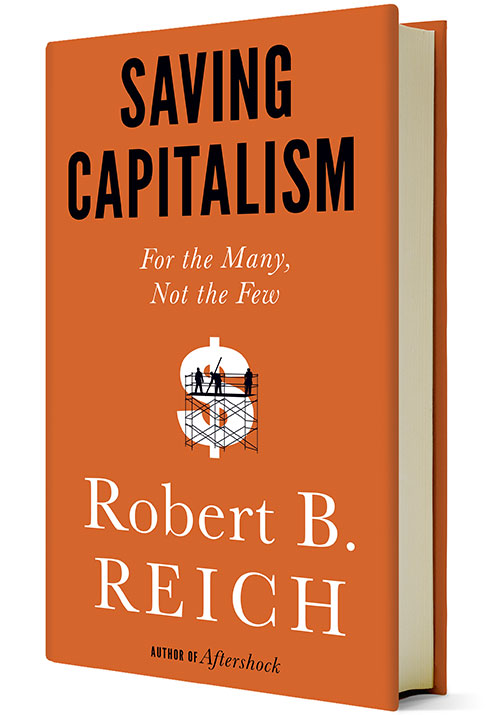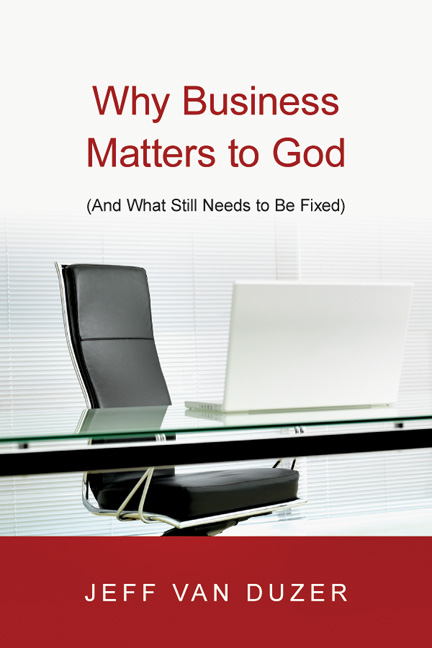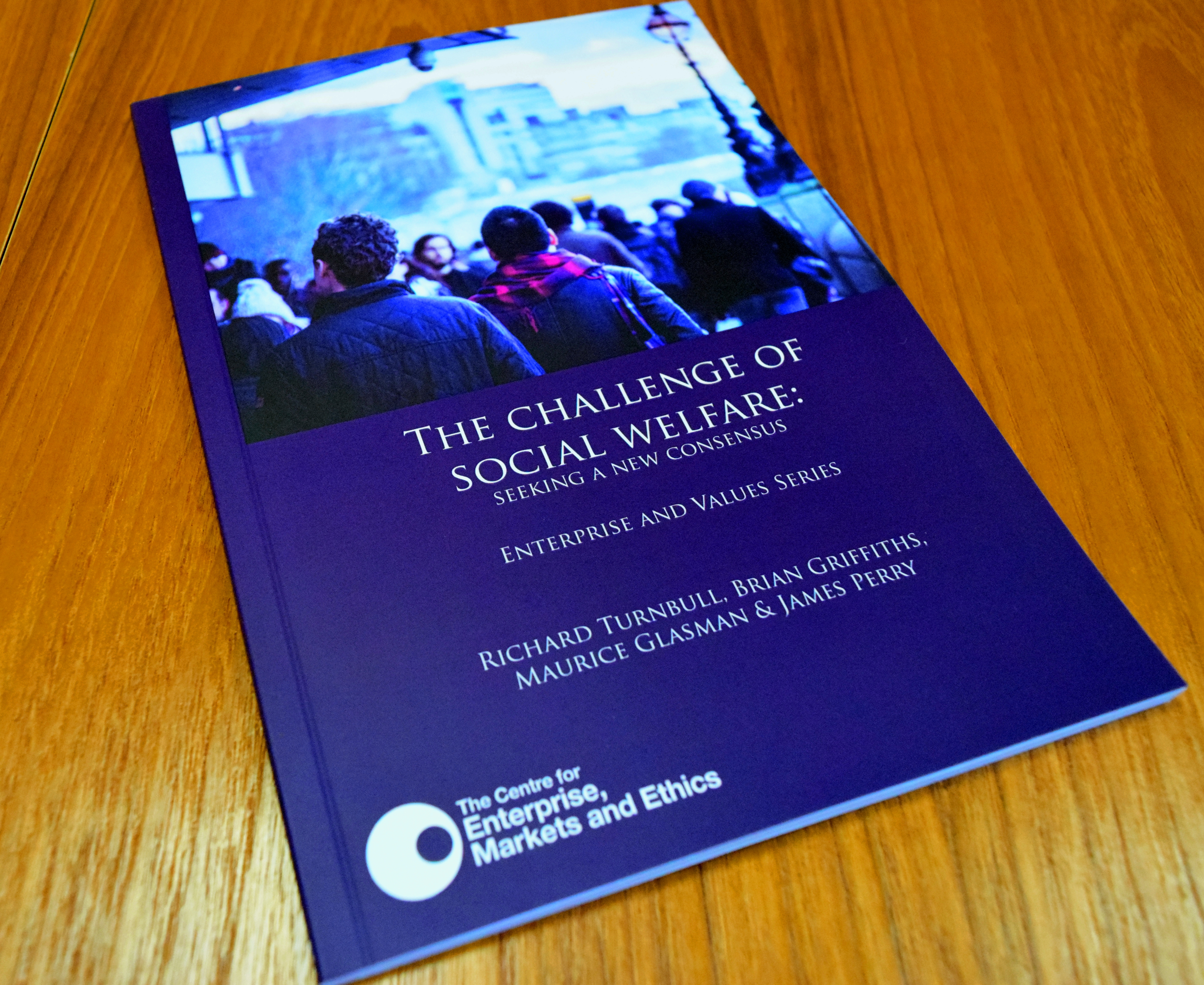
Saving Capitalism – For the Many not the Few is the latest addition to Robert Reich’s cohort of publications. He is perhaps best known for his previous work, The Work of Nations (1992) which raised the issue of growing inequality to the public sphere. Alongside his writing, Robert Reich is also a Professor at the University of California, Berkeley, and has served in various positions under the administrations of Gerald Ford and Jimmy Carter. Most notably, he was US Secretary of Labour under the Presidency of Bill Clinton between 1993 – 1997.
At the age of 71, Reich brings a lifetime of experience in both academia and politics to the table. As a true social-democrat, Reich’s Saving Capitalism is a continuation of the themes he discusses in previous publications – some of which include: rising inequality, the not so ‘free’ marketplace, the over-concentration of political and economic power in the hands of a few, the disenchantment of the masses, and others.
As the title may suggest, Saving Capitalism is a critique of the free market structures and modern-day capitalism. Reich argues that decision-making power is increasingly concentrated in the hands of a few, at the expense of the ‘many’. The very rich get richer and more powerful, while the middle and lower classes get weaker and poorer. The entire system is rigged against the majority in favour of a concentrated few. The solution to this injustice, Reich suggests, is an “…activist government that raises taxes on the wealthy, invests the proceeds in excellent schools and other means people need to get ahead, and redistributes wealth to the needy” (page xvii).
Does this narrative sound familiar? To many it certainly will. Robert Reich’s Saving Capitalism is therefore one among numerous publications that champion the social inequality-class warfare thesis. In that sense, the book brings little to nothing new to the debate. Nonetheless, it is well-written and its use of colloquial language grapples the reader. This does however make the book read like more of a socio-political novel rather than a macroeconomic or political account. One cannot help but feel that Reich’s desire to push his own personal narrative has come at the expense of rigorous analysis.
But before jumping to any conclusions, let’s briefly touch upon the structure and content.
Saving Capitalism is comprised of three main parts. The first chapter, entitled “The Free Market” aims to show how in fact ‘free markets’, are not ‘free’ (page 85).
As you may have already guessed, Reich argues that this is due to them being controlled by a select, powerful few that both establish and control rules in which a ‘free market’ operates. He argues that there are five ‘building blocks’ of a free market: property, monopoly, contracts, bankruptcy and enforcement. Each of these require human governance and can be used to either, promote a fair and decent society or can be manipulated to benefit a select few (page 9). This first part of the book argues that the latter has occurred. The stronghold on patent laws by pharmaceutical companies, the large lobby budgets of corporations to maintain dominant market positions, the abuse of bankruptcy laws, are all cited as evidence that the entire system is rigged in favour of on elite few.
The second part of the book is dedicated to showcasing the consequences of such a rigged system. Here Reich argues that free market meritocracy is in fact, a myth. Those at the top increase their own wages whilst those at the middle and bottom see their wages stagnant and in many cases, decline (pages 134-167).
In the third and final chapter, Reich argues for a restoration of countervailing power, or in layman’s terms, bringing power back to the people. The means by which he believes this can be achieved are certainly not new: an increase in the minimum wage, amending labour laws to favour unions, and changing contract laws as to encourage employees and workers to take action against unjust employers (pages 153 – 217).
So while Robert Reich’s latest work presents a compelling critique of the challenges facing 21st century capitalism, it brings little new to the table. Moreover, any truly impartial reader that has some basic understanding of economics would be quick to observe that Saving Capitalism is unabashedly lopsided. There is no doubt that western capitalism is at a crossroads, and the aftermath of the financial crisis has left millions feeling disenfranchised. However, Robert Reich portrays injustices within the free market (as real as they may be), as characteristic of the entire economy. It’s a bit like saying, we can’t play football anymore because one of the players faked an injury.
He also seems to portray an over-the-top form of class warfare: the elite vs. the rest. As if the classes are statutory and unitary groups with no movement or change between. The rich and powerful only stay rich and powerful while the rest suffer the consequences of their actions. We know this is simply not the case – a free market economy does indeed reward creativity and work. Whether, intentional or unintentional, Reich left out any deeper economic discussions, such as aggregate supply/demand and its impact on market meritocracy. This brings us to what is perhaps the most significant pitfall of the book, it is far to rooted in empirical storytelling rather than political or economic analysis. No matter how broad Robert Reich’s experience may be, personal examples should always be an addition to the argument and not its foundation.
Having said that, Saving Capitalism offers some captivating thoughts on the current state of free market. Provided that its rather superficial and politicised arguments are viewed through a critical lens, the book is certainly a worthwhile read.
“Saving Capitalism: For the Many, not the Few” was published in 2016 by Icon Books Ltd. (ISBN: 9781-78578-0677). 279pp.
 Andrei Rogobete is a Research Fellow with the Centre for Enterprise, Markets & Ethics. For more information about Andrei please click here.
Andrei Rogobete is a Research Fellow with the Centre for Enterprise, Markets & Ethics. For more information about Andrei please click here.

“Why Business Matters to God” is addressed to Christians. Jeff Van Duzer, now Provost of Seattle Pacific University and formerly Dean of its School of Business and Economics, suggests that Christians in business “have often been made to feel like second-class citizens in God’s kingdom” (page 9). His aim is to counter the attitudes that underlie this by affirming the intrinsic value of business work “as work full of meaning and importance to God”, whilst at the same time challenging what he describes as the “dominant business paradigm of the day” (page 9). The result is an excellent, well-argued and thought provoking book that should be read by all Christians engaged in business.
Van Duzer undertakes his task by using a theological framework, considering in successive chapters the implications for business of the biblical accounts of creation, fall, redemption and consummation.
From the creation story, he concludes that the material world matters to God, that human beings are called to steward God’s creation and that we are made to work (i.e. that work is not a punishment or a necessary evil). He notes that society has many institutions (e.g. families, churches and governmental bodies) and asks “which aspects of the creation mandate are best suited for business to handle?” (page 41). He points to the role of business in the creation of wealth and concludes that the intrinsic purposes of business are “to provide the community with goods and services that will enable it to flourish, and … to provide opportunities for meaningful work that will allow employees to express their God-given creativity” (page 42).
At this point, the reader may feel that the account of business is too rosy but this issue is squarely addressed in the next chapter, which considers the implications of the fall. Here Van Duzer parts company with the more extreme free market enthusiasts (both Christian and non-Christian) by stressing that “the market will not usher in the kingdom of God” (page 75) and suggesting that the market mechanism is an aspect of common grace that mitigates some of the consequences of the fall. He stresses that we cannot “equate market forces with God’s perfect will” (page 79).
Having done this, Van Duzer reverses the logical theological order and leaps on to consider what the biblical account of ultimate salvation (“consummation”) can teach us that is of relevance to business. In doing so, he heads into stormy theological waters as he assesses the relative merits of adoptionism and annihilationism as an explanation of how God’s new heaven and new earth will be inaugurated. He sides with the “cautious adopters” (page 94) but those who don’t take this view will be pleased to hear that it is not central to his argument and he acknowledges that “any conclusions we may reach must be held lightly” (page 83). This result is that this part of his analysis is less fruitful than other parts of it.
He next considers redemption and suggests that business must “concern itself with redemptive as well as creative work” (page 114), whilst accepting that it is operating within the “messy middle” (page 118). In this context, he rejects both the cynicism of those who suggest that “Business ethics is an oxymoron” and the optimism of those who argue that “Good ethics is good business” in the sense that there will always be a bottom line benefit for those practicing good ethics.
Van Duzer recognises that our attitude to business will turn to a considerable extent on our view of how Christians should engage with the world (what he calls our “posture of engagement”) and also upon our attitude to institutions of all kinds in the modern world. He devotes an “excursus” to each of these issues, of which the first is particularly helpful. It adopts Niebuhr’s typology (“Christ against culture”, “Christ of culture”, “Christ above culture”, “Christ and culture in paradox” and “Christ the transformer of culture”) and demonstrates how our answers to several key theological questions are likely to determine which type of cultural engagement we adopt and, specifically, our view of the role of business.
The final quarter of the book is less well structured than it might have been and parts of it would have better merged with the earlier chapters. None-the-less, it contains some worthwhile discussions of important issues such as business sustainability (in the broad sense) and, most importantly, the role of profit and enhancing shareholder value. Van Druzer recognises the essential instrumental role of profit but denies it any greater significance, specifically rejects the notion that the maximisation of profit or shareholder value is a primary goal of a business.
Although published under the IVP Academic banner, this is not an academic work. It does not interact extensively with other literature and it has no bibliography, although it makes good use of footnotes that may suggest further reading.
It is a short book and could not possible consider all of the angles on its subject. None-the-less, it would have been helpful had Van Duzer considered questions that arise from his dethroning of profit and shareholder value: Might this result in a loss of focus on efficiency and thus reduce wealth creation? How can managers be rendered accountable for the delivery of goals that cannot be quantified or otherwise clearly measured? If shareholders in a public company appoint and remove them, will the directors not always focus on the maximisation of shareholder value? Who might enforce any broader directors’ duties? Van Duzer is a lawyer by background and his views on these issues would be interesting.
Despite the final chapter’s focus on “making it real”, many readers may be left wondering how it is possible to translate Van Duzer’s vision of business into practice in a secular Western business context. This is a significant issue. However, the purpose of this book is to provide a Christian conceptual framework for business not to analyse in detail its implications in relation to day to day management. Addressing these implications would require another book and perhaps the only significant criticism that can be levelled at Van Duzer is that he hasn’t yet written it!
“Why Business Matters to God” was published in 2010 by InterVarsity Press (ISBN 10: 0830838880). 201pp.
 Richard Godden is a Lawyer and has been a Partner with Linklaters for over 25 years during which time he has advised on a wide range of transactions and issues in various parts of the world.
Richard Godden is a Lawyer and has been a Partner with Linklaters for over 25 years during which time he has advised on a wide range of transactions and issues in various parts of the world.
Richard’s experience includes his time as Secretary at the UK Takeover Panel and a secondment to Linklaters’ Hong Kong office. He also served as Global Head of Client Sectors, responsible for Linklaters’ industry sector groups, and was a member of the Global Executive Committee.

The Centre for Enterprise, Markets and Ethics (CEME) is pleased to announce the publication of Ethics in Global Business: Building Moral Capitalism by Andrei Rogobete.
The publication can be downloaded here. Alternatively, hardcopies can be ordered by contacting CEME’s offices via email at: office@theceme.org

The Centre for Enterprise, Markets and Ethics (CEME) is pleased to announce the publication of The Challenge of Social Welfare: Seeking a New Consensus by Brian Griffiths, Richard Turnbull, James Perry and Maurice Glasman.
The publication can be downloaded here. Alternatively, a hardcopy can be ordered by contacting CEME’s offices via email at: office@theceme.org or by telephone at, (+44) 0186 5513 453.